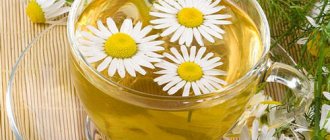Medicinal plants have long been used in folk and official medicine. Infusions, infusions, elixirs, and other herbal remedies, in the absence of obvious contraindications, are given to children, the elderly, and adults: healthy - to prevent illnesses, sick - to shorten and harmonize the recovery period. It is a common practice to use hawthorn during pregnancy and breastfeeding. This often benefits both mothers and babies.
General information about hawthorn
Hawthorn is a shrub of the Rosaceae or Rosaceae family.
It got its name from the Greek “strong” for its dense wood and longevity. Typically, this thorny shrub with a spherical crown reaches a height of 3 - 5 m, but can grow higher than 10 m. The leaves are oblong, arranged in a spiral. The flowers are small, up to 2 cm in diameter, pink or purple in garden crops, flowering time is early summer. The fruits ripen in September and are sometimes called small apples due to their similar shape. Since the 16th century, the plant has been used for medicinal purposes. The inflorescences, berries and even leaves of hawthorn are healing. The inflorescences begin to be collected as soon as they bloom, the fruits - only after turning bright red, and then they are dried. In earlier times, hawthorn was used as an astringent for diarrhea and dysentery. Since the 19th century, a decoction of inflorescences and leaves has been known as a blood purifier. In the 20th century, the fruits and inflorescences were prescribed to patients suffering from heart disease. Hawthorn flowers are very rich in vitamins, microelements and other chemicals, including caffeic, chlorogenic, and ursolic acids, and the fruits are rich in ascorbic, tartaric and citric acids.
The plant contains iron, calcium, copper, zinc, cobalt, potassium, phosphorus, and magnesium.
In general: what are the benefits of hawthorn fruits?
This plant has a rich vitamin composition, it contains enough microelements that strengthen the heart, blood vessels, and nervous tissue. Hawthorn fruits contain a lot of tannins, pectins, and flavonoids. The plant contains potassium, copper, iron, calcium, cobalt, magnesium. Hawthorn (or hawthorn) is rich in choline, carotene, thiamine and riboflavin.
Hawthorn is recommended to be used for:
- Hypertension;
- Nervous stress;
- Some cardiovascular problems.
But in any situation, the use of hawthorn is agreed with a doctor. There are certain contraindications; not every organism will benefit from hawthorn fruits. No matter how wonderful reviews you read, you should not take hawthorn in any form without a doctor’s recommendations.
Dill water: 8 useful functions
Is it possible to eat hawthorn during pregnancy?
Benefits During pregnancy, a woman should monitor her health more closely than ever and refrain from stress and overwork.
Unfortunately, changes in the female body that affect the nervous system contribute to frequent mood swings, the appearance of excessive irritability, etc. All this can lead to pain in the heart as a result of rhythm disturbances, which in turn provokes even more stress and anxiety. Since many medications cannot be used by pregnant and breastfeeding women, traditional medicine comes to the rescue. Hawthorn is believed to have a calming effect, but in fact it simply lowers blood pressure and relaxes the heart muscle. Hawthorn-based mixtures normalize blood pressure, stabilize the functioning of the heart muscle, and act as sedatives and antispasmodics. They are used as a soothing tea, and taking a few of these berries before bed will provide a relaxing and deepening experience.
In general, pregnant women should use hawthorn very carefully. Please note that it is not so harmless, and it is better to consult a doctor when using this plant.
During pregnancy, you should not take hawthorn tincture; if you already drink it, then take infusions or decoctions. Using berry poultices can reduce milk supply during breastfeeding. Unreasonable overconsumption increases the risk of miscarriage.
Hawthorn as a remedy
Hawthorn is a plant that reaches 5 meters, although sometimes you can see a bush twice as tall. It begins to bloom in early June, small white inflorescences appear on it, which have a pleasant aroma. By the end of August the fruits begin to ripen. These are small red berries. They have an oblong or round shape. Inside, the flesh is orange or yellowish in color, and they taste sweet and sour. Interestingly, both flowers and fruits, and even leaves can be used for treatment. By the way, the latter have an oblong, pointed shape. In order to understand whether hawthorn can be consumed by pregnant women, it is worth first understanding its effect on the body.
There are many different recipes for preparing hawthorn, and it can be used to treat a specific condition, as well as reduce nervousness and the side effects of stress.
Hawthorn methods of use
Hawthorn has a wide range of uses, for example in the confectionery industry.
After drying, the fruits are ground and added to flour to make cookies and buns. It gives baked goods an intriguing fruity aroma. And by mixing ground berries with honey you can get an excellent pie filling. During pregnancy, it is better to use hawthorn in the form of compotes, decoctions, infusions, cocktails; it is not advisable to use the fruits raw, jam and, of course, alcohol tinctures. To strengthen the immune system, a compote of dried fruits and hawthorn is used (no more than 15 berries per 3 liters of water).
Contraindications and harm
Hawthorn is a fairly powerful remedy, and it has side effects and contraindications.
If a woman has been diagnosed with one of the following, then she should not drink hawthorn during pregnancy (infusions, tea, decoction).
Contraindications for use:
- atherosclerosis;
- allergy to this particular plant;
- toxicosis;
- extrasystole;
- supraventricular tachycardia;
- vegetative-vascular dystonia;
- atrial fibrillation.
What side effects do hawthorn fruits have:
- makes a person sleepy;
- weakness occurs;
- the reaction rate is weakened;
- a large dose sharply lowers blood pressure;
- taking a large amount causes heart rhythm disturbances;
- sometimes causes allergies.
Important! You should absolutely not use hawthorn during early pregnancy (first trimester). Pregnant women can use any drug or medicinal herbs only as prescribed by the gynecologist monitoring the pregnancy.
This medicinal plant is not poisonous, it is safe for people and very useful. But it is important to follow the recommended dosages, rules and time of use. Pregnant women, when drinking teas, tinctures or decoctions from this plant, should remember that they should be taken only after meals (no earlier than 20-30 minutes later).
Hawthorn for treating insomnia
A smoothie made from honey and hawthorn infusion, one teaspoon each, a medium banana, two teaspoons of kefir, vanilla and cinnamon can be added to taste.
Everything is mixed in a blender and taken an hour before bedtime. Tincture of 50 grams of hawthorn flowers, which are filled with 0.3 liters of boiled water only. Then the composition is cooled and filtered. It is recommended to use one tablespoon three times a day.
For nervous overload
An infusion of 80 grams of leaves per half liter of boiling water. The product is infused in a dark place, after which it needs to be filtered after half an hour. Take half a glass of infusion three times a day. An infusion of 300 ml of boiling water, which is poured over two dessert spoons of dried fruits. The composition is infused for one and a half hours in a warm place, then filtered. Use two tablespoons no more than three times a day.
Hawthorn for nervous tension
Another common problem among pregnant women is stress and severe nervous tension. In this case, if there are no contraindications from a doctor, you can use the following recipe:
- Take hawthorn leaves (80 g) and hot water (500 ml).
- The leaves of the plant are poured with hot water and left for 30 minutes so that the product is well infused.
- The finished broth is filtered and taken 3 times a day, 100 ml.
The following remedy will also help calm the nervous system:
- You need to take hawthorn berries (1.5 tbsp), hot water (300 ml).
- All components are mixed, the broth is left for 1.5 hours (the container is wrapped in a towel to keep warm).
- The finished product is filtered.
- You should take the decoction no more than 3 times a day, 30 ml.
Hawthorn precautions
Not only when consuming medications, but also medicinal herbal infusions, it is important to take precautions. In the case of hawthorn, overuse of this product can cause the following symptoms:
- drowsiness and decreased reaction speed;
- weakness throughout the body;
- heart rhythm disturbances;
- a sharp drop in pressure.
For example, eating just one glass of fruit will lead to a catastrophic drop in blood pressure and noticeable heartbeat disturbances.
You should not use hawthorn preparations on an empty stomach, it is better after 10-20 minutes. after meal. Considering that this plant can cause allergic reactions, it is completely contraindicated for some. We must not forget about trivial measures:
- collection of medicinal plants should be carried out in environmentally friendly places;
- plant elements can be collected at appropriate periods: the beginning of flowering and after ripening;
- drying should only be carried out in a well-ventilated area;
- When using, you need to carefully monitor the dosage.
Hawthorn is a non-toxic plant with medicinal properties. The most important thing when using it is to follow the correct dosage. By following all precautions and not neglecting consultations with specialists, it will help strengthen blood vessels, remove excess stress on the heart, reduce the amount of cholesterol in the blood, reduce nervous tension, and get rid of insomnia and swelling.
| Return to list |
Hawthorn recipes
There are a considerable number of recipes for dishes made from hawthorn, and eager housewives are coming up with more and more varieties of delicious food from this healthy berry. Considering that pregnant women love to eat while carrying a child, many recipes will come in handy for them.
- Hawthorn puree. The collected fruits must be thoroughly washed, filled with water and cooked until completely softened. Pass the resulting mass through a sieve, reheat, bringing almost to a boil, remove from heat and pour into sterile jars. This mixture can be stored in the refrigerator for a long time. Berry puree can also serve as a base for other dishes.
- Pastila. Freshly prepared hawthorn puree is thoroughly mixed with sugar, then the resulting mass is spread in a thin layer on baking sheets and dried in the oven. The plates are cut into strips and rolled into tubes.
- Candy. The finished puree is mixed with sugar and starch to obtain a dense, homogeneous mass. Mixture proportion: 1 kg puree/0.5 kg sugar/0.1 kg starch. The mass must be laid out in a 2 cm layer on a baking sheet or wooden board and cut into cubes. Sprinkle powdered sugar on top and leave until slightly dry. Carefully place the finished candies in a box and store at room temperature.
- Kvass. Wash the hawthorn berries and cook for a while in a small amount of water, then rub through a sieve, add the required amount of water, yeast and honey. Leave for half a day. Tasty and healthy kvass is ready.
- Cocktail. Representatives of the fair half love to drink cocktails. To prepare the dish, you need to beat 2 tablespoons of hawthorn juice and half a cup of curdled milk in a blender, add honey and cinnamon to taste.
How can you use the fruits?
Blackthorn is a very versatile remedy. The berries can be dried, ground and added to flour. And if you mix ground hawthorn fruits, which have beneficial properties, with honey, you get an excellent filling for pies.
During pregnancy, you can prepare compotes, decoctions, and infusions. These drinks should not be taken on an empty stomach. Intestinal spasms will begin, and prolonged vomiting will begin.
Hawthorn tincture
The instructions for the pharmacy tincture indicate that it should not be taken in the first trimester. But you must refrain from using alcohol-based products at a later date. Therefore, hawthorn in the form of a tincture is absolutely not suitable for pregnant women.
Important! We have already written in detail about the beneficial properties of hawthorn tincture, its use and contraindications.
Doctors also do not recommend that pregnant women consume fresh fruits and blackthorn jam.
How to brew a classic hawthorn decoction?
- Pour boiling water (220 ml) over berries (15 g).
- Leave for a quarter of an hour.
- Free from pulp.
Take 90 ml twice a day. The course lasts 2-4 weeks. After which you definitely need to take a break.
Interestingly, there are several methods for brewing and drinking hawthorn!
Contraindications for use
Despite the fact that hawthorn is considered a useful plant, there are certain restrictions on its use during pregnancy:
- the presence of individual intolerance;
- toxicosis;
- vegetative-vascular dystonia;
- hypotension (low blood pressure);
- tachycardia (rapid heartbeat).
You need to be very careful with consuming hawthorn if you are prone to allergies, as a strong negative skin reaction may occur. That is why allergy sufferers are not recommended to use this plant.
When should you not use it?
Any medicine, regardless of its nature, be it a medicine or traditional methods, has indications and contraindications for use. The same can be said about hawthorn. Let's look at some situations when you should refrain from treatment with this plant.
- If the patient wants to treat the heart, then you should first consult with a doctor who will give consent to this. Such problems can worsen if folk remedies for self-medication are not used wisely.
- Individual intolerance to the components that make up the drug.
- During pregnancy and lactation, you should use hawthorn with extreme caution; it is better to do this after consulting a doctor and carefully monitoring the body’s reaction. Whether hawthorn can be taken by pregnant women, only the attending physician can say for sure.
- You must adhere to the dosage that is prescribed to you, and in no case exceed the indicated values.
- The course of treatment must be periodically interrupted, after which it can be repeated.
- After taking the tincture of this plant, it is not recommended to drink cold water.
In order for hawthorn to bring you only benefit, and not aggravation or harm, you need to follow all the doctor’s recommendations and monitor your general health.










